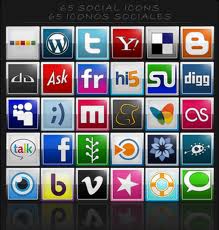This week, many Facebook users are being affected by a coordinated spam attack that is littering newsfeeds and profiles with violent and pornographic images. Though this most recent breach has prompted an outcry (due to the severely disturbing images), these spam attacks are not new or unusual. With millions of active users, Facebook has become a popular target for cybercriminals intent on doing some damage through spamming, phishing, socialbots, etc. In fact, more than 20 percent of newsfeed links currently open viruses or imposter sites. And though Facebook and social media platforms do try to safeguard users’ profiles, hackers continue to attack the system and are actively coming up with new schemes.
But there’s no need to delete your account. Luckily, there is a powerful defense against social media hackers: you. Because many of these malicious actions require your participation to become active, educating yourself is the best way to fight Facebook hackers. Here are our tips to protect your profile.
Don’t click on suspicious links: Spammers will attempt to flood your newsfeed with links encouraging you to click for special offers, games, or even apps that don’t exist (one popular scam advertised a “dislike” button you could download). Carefully consider what you click on. Note that any link that takes you away from the Facebook site and requests personal information is likely illegitimate.
Don’t accept unknown friend requests: Only add people you actually know. Socialbots (malware that mimics humans on social sites) will create fake profiles and request friendship to gain access to your info. It’s best to stick to contacts you know are legitimate.
Never paste lines of code into your browser bars: No matter how convenient it may seem, don’t copy/paste code into your browser. This is often a ploy that gives hackers power to distribute malware (this is the technique the most recent scam used). Instead, type in the URL address of any site you intend to access. Make sure you have the most up-to-date version of your browser, too. Also beware of popups or requests to install programs such as video viewers.
Police your friends: If you receive suspicious or uncharacteristic messages from your contacts, such as a “sexy photos” post from your mom, verify that they actually sent it. Don’t click the link; report it instead.
Turn on https:// browsing on your Facebook settings: This setting limits the content you can see, but it will protect you against spammers. Go to Account Settings, click on Security, then enable Secure Browsing.
Download Facebook security software: You should already have a full security suite installed and updated (firewall and anti-virus), but you should also protect yourself with additional software. ZoneAlarm’s SocialGuard protects you on Facebook by notifying you if your account gets hacked and alerting you to malicious links—best of all, the trial is free (download here).
Don’t post personal info: Never post financial or personal information that can be used for identity theft or fraud. You can also decrease your chances of being hacked by using separate usernames and passwords for all your social media accounts.
How to Protect Your Facebook Profile - ZoneAlarm Blog
" The Roving Giraffe News Report " provided by Ace News



